|
Seeds > Heirloom > Grains |
|
Heirloom Grain Seed |
|
|
| |
|
|
| |
|
|
| |
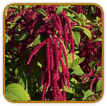 |
Heirloom Amaranth Seeds
Once considered a simple weed in the United States, this nutritious annual is finally being acknowledged as the nourishing high-protein food it is. Amaranth greens have a delicious, slightly sweet flavor and can be used both in cooking and for salads. The seeds are used as cereal or can be ground into flour for bread.
|
| |
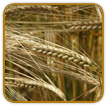 |
Heirloom Barley Seeds
This hardy grain dates back to the Stone Age and has been used throughout the eons in dishes ranging from cereals to breads to soups. Most of the barley grown in the Western world is used either for animal fodder or, when malted, to make beer and whiskey.
|
| |
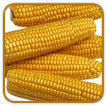 |
Heirloom Corn Seeds
Throughout Europe, "corn" has always been the generic name for any of the cereal grains; Europeans call corn maize, a derivative of the early American Indian word mahiz. Corn is not only a popular food, but the foundation of many by-products including bourbon, corn flour, cornmeal, corn oil, cornstarch, corn syrup, corn whiskey and laundry starch. |
| |
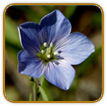 |
Heirloom Flax Seeds
Flax of has been cultivated since prehistoric times. It is cultivated as a fiber plant; it is also grown in many tropical countries for its oil-bearing seeds. When grown for fiber, flax is sown densely to prevent branching and is gathered before maturity.
|
| |
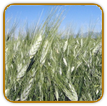 |
Heirloom Kamut Seeds
Considered by some to be the great-great grandfather of grains, kamut is a variety of high-protein wheat that has never been hybridized. Kamut's kernels are two to three times the size of most wheat. Not only does this grain have a deliciously nutty flavor, but it also has a higher nutritional value than its modern-day counterparts.
|
| |
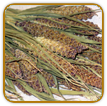 |
Heirloom Millet Seeds
Though America cultivates this cereal grass almost exclusively for fodder and bird seed, millet is a staple for almost 1⁄3 of the world's population, particularly in disadvantaged regions of Asia and Africa. |
| |
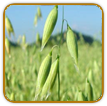 |
Heirloom Oat Seeds
The common oat plant is a species of cereal grain grown for its seed, which is known by the same name. While oats are suitable for human consumption as oatmeal and rolled oats, one of the most common uses is as livestock feed.
|
| |
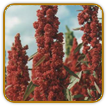 |
Heirloom Quinoa Seeds
Although quinoa is new to the American market, it was a staple of the ancient Incas, who called it "the mother grain." To this day it's an important food in South American cuisine. Hailed as the "supergrain of the future," quinoa contains more protein than any other grain.
|
| |
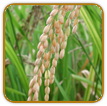 |
Heirloom Rice Seeds
Today, rice is a staple for almost half the world's population-particularly in parts of China, India, Indonesia, Japan and Southeast Asia. Rice is commercially classified by its size-long-, medium- or short-grain. |
| |
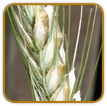 |
Heirloom Rye Seeds
Cereal grass and its edible grain, used to make rye bread and rye whiskey, as livestock feed, and as a pasture plant. Native to South Asia, today it is grown extensively in Europe, Asia, and North America.
|
| |
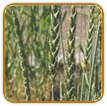 |
Heirloom Spelt Seeds
Native to southern Europe, where it's been used for millenniums, spelt is an ancient cereal grain that has a mellow nutty flavor. The easily digestible spelt has a slightly higher protein content than wheat and can be tolerated by those with wheat allergies.
|
| |
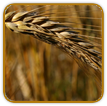 |
Heirloom Wheat Seeds
Wheat is the world's largest cereal-grass crop. Its status as a staple is second only to rice. One reason for its popularity is that-unlike other cereals-wheat contains a relatively high amount of gluten, the protein that provides the elasticity necessary for excellent breadmaking. |
| |
|
| |
|
|
|
| |
|
|